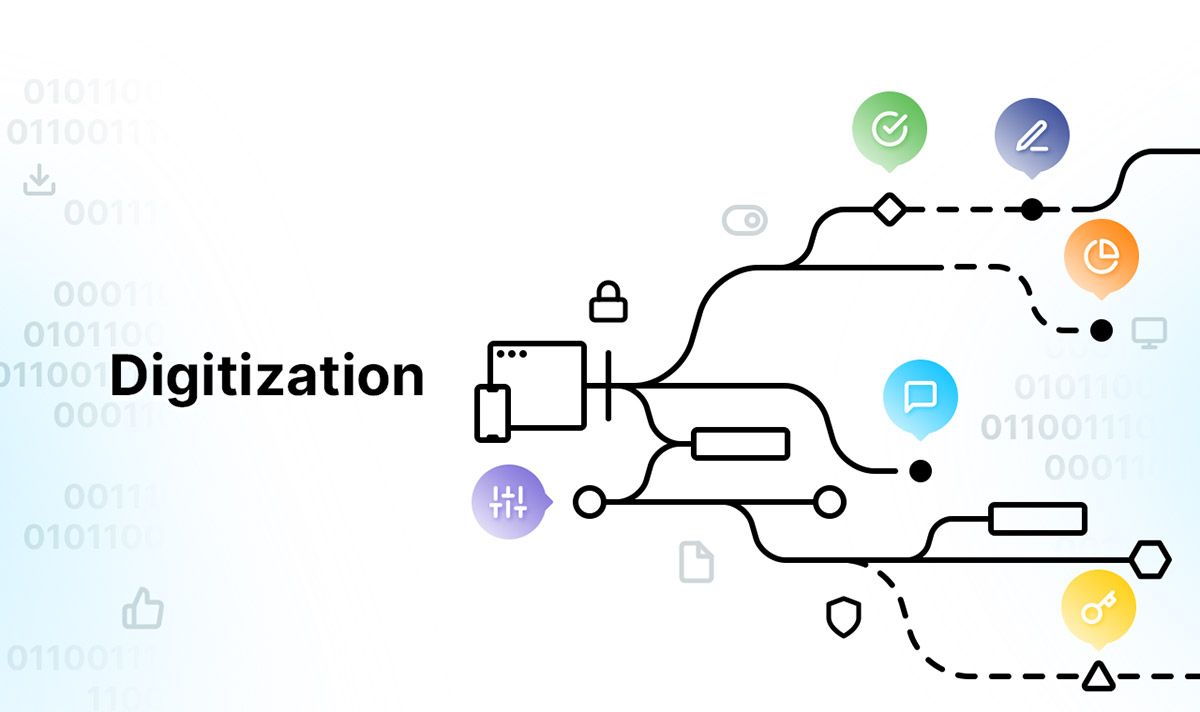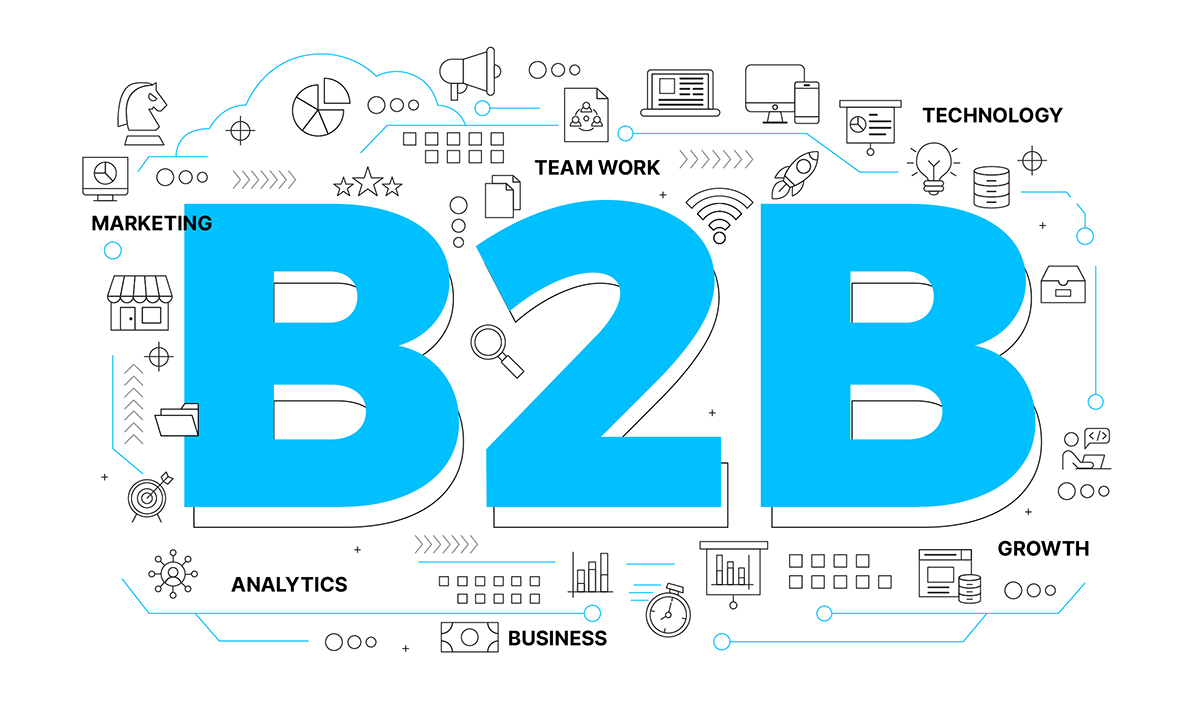With growing technological advancements, change in business models & customer demands – digitization is becoming a buzzword on the CEO’s table. Apart from transforming internal business processes & operations, this new trend helps businesses thrive by boosting productivity, efficiency and ROI – making businesses competitive.
According to Gartner, 1% of businesses are engaged in some form of digital initiative, and 87% of senior business leaders say digitalization is a priority.
In recent years, there has been a trend of businesses digitizing their operations to stay out of the curve. This has been driven by the need to be more efficient and improve customer experience, save resources and more. In this blog post, we will explore the end-to-end benefits of digitization in your business. But, before you opt for this revolution ask yourself – what kind of business do you have? And Do you have the opportunity to become a disruptor in your industry?
If the answer is yes, you are ready to create an impact on the community by keeping abreast of digital transformation.
For the past couple of years, Enliven is creating upheaval by empowering CEOs to scale in the fast-paced environment with its innovative digital services. CEOs are embracing automation in business operations, sales, Finance, HR, and customer support like never before.
Let’s get started!
What Does Digitization Mean In A Business?
Digitization is the automated process of converting traditional business information into a digital format. In business, digitization can be used to streamline processes, improve communication, and make data more accessible. Also, this can be done for a variety of purposes, including making it easier to store, share, and analyze. Digitization can also help businesses automate processes and improve efficiency.
Whereas, digitalization is the process of transforming with an aim to improve business operations, and efficiency by using various digitized data and digital technologies.
However, enterprises cannot embed digitalization unless they have the required digital assets & data, where automation is playing a game changer.
What Can Digitization Bring On The Table?
When we speak with CEOs one question always emerges – Why should I invest in digitization? In today’s fast-paced and digitally driven world, we are constantly bombarded with new innovations and concepts. The digital age has opened the door for businesses to reinvent themselves using the many tools at their disposal. And nowadays, anyone can set up & run a business by carving out a niche. Thanks to technology, almost every company can now streamline processes, reduce overhead costs, and generate more revenue through e-commerce or online sales. Thus, enterprises need robust digital transformation to ensure their sustainability & scalability.
1.Higher Productivity & Efficiency
Digitalization can help to improve a business’s efficiency and productivity. With the advent of cloud technology, mobile apps, & ERP automation, analysing big-complex data, managing finances, R&D, and sales become time-saving & effective and help businesses achieve higher levels of efficiency and productivity. Also, employees can send emails, make calls, and even video chat with each other. This reduces the need for in-person meetings, saves time and increases productivity.
2.Improved Resource Management With Automation
Businesses need to have a robust resource management plan to ensure maximum use of their resources for optimal growth – from capital to inventory. The integration of cloud computing is booming rapidly to manage the resources across all the departments. The businesses only pay for the required resources thus saving their cost.
3.Lower Operational Costs Of Businesses
Digitalization is cost-effective which is the aim of every business. By digitizing your entire business processes, you can significantly reduce costs associated with paper, manual task performance and storage. This includes costs of manual lead management, performing data analysis or finance management.
By digitizing information-intensive processes, costs can be cut by up to 90% – McKinsey
4.Better Agility
Technology is evolving and new trends are introduced in the market every day. To cope with the rapid technological revolution, business needs an agile system.
Digitalization is flexible. If a new technology comes along that is better suited to your business needs, you can easily incorporate it into your digital system. The result is a more efficient, customized system that meets your needs exactly.
5.More Transparency & Better Communication
Transparency is key to success. To make a better business decision CEOs must have visibilities into their dynamic customer base & latest trends in the market. Unavailability of up-to-date information can push the business on the verge of failure. Data-driven digital technologies help businesses get operational transparency by availing all the business data in one place. Also, technology has allowed them to communicate with each other more effectively. Instead of sending emails back and forth, business leaders can text message or call other departments directly. This gives better communication & transparency. Plus, through automation, businesses can gain visibility into how their systems operate and identify potential problems before they occur.
6.Opportunity To Increase Revenue
Digital technologies are capable of increasing a company’s revenue by discovering new market trends and customers. Businesses can market their products and services online, reducing the amount of time they spend travelling and increasing the efficiency with which they operate. They can also use digital tools to process payments faster and more securely than they otherwise would be able to. Digitalization can help companies across all industries stay on top of trends in their industry and adjust accordingly. This can lead to an increase in revenue and customer loyalty.
7.Amplified Customer Experience
Digital transformation enables businesses to provide customers with a seamless experience across channels. Customers expect to have access to information at any time and anywhere with a userfriendly website & mobile app. Thus, the business should be able to deliver personalized experiences across different devices and platforms. It can help you reach more customers and make your products or services more accessible to them. Digitalization allows businesses to do things like selling their products online, process payments more efficiently, and automate tasks that used to be done manually. It also allows businesses to keep track of their sales & lead data in a centralized location, which can help them respond to changes in their industry more quickly. Thus, businesses can stand out from competitors by creating new products or services that are tailored to meet customer needs.
8.Enhanced Security Posture
Digital transformation provides enhanced security by reducing risks associated with cyber attacks. Cyberattacks can disrupt business operations, damage confidential data, and cost millions of dollars per year. By implementing digital technologies, organizations can prevent these types of threats.
Final Thoughts
The potential & benefits of digitization are endless. That is why according to World Economic Forum, digital transformation is expected to add $100 trillion to the world economy by 2025. Today, in the cutthroat competition digitization is no longer an option but becoming a need. Moreover, digitalization is sustainable. With digitalization, you can minimize the impact that climate change has on your business. For example, if you have to move your business because of flooding or drought, you won’t have to worry about losing all of your data in the process. Today’s businesses must be agile & flexible to adopt the rapid technological shifts.
Enliven helps businesses drive technological revolution and sustain them in the 4th industrial revolution with its dynamic sophisticated digital services. If you are wondering how digital technologies can make your business operation easy, secure & efficient, book a free consultation today and create an impact in the industry.






